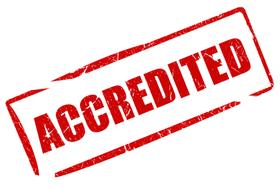Is Community College the Best Option for Homeschoolers?
Community college has gained a reputation for being the ideal option for nontraditional students. Single parents, retirees, and individuals hoping to switch careers are some of the biggest beneficiaries of community college, but there is another group of students to think about – homeschoolers.
According to the National Household Education Survey Program (NHES), over 1.7 million K-12 students were homeschooled in the United States. Homeschooling has become increasingly more popular since it became a legal option in all 50 states in 1993.
There are many reasons why parents choose to homeschool their children. For some, it is a matter of wanting greater control over their child’s curriculum and schedule or a desire to create a program adapted to their child’s needs. Homeschooling can help parents create a stronger bond with their children, and it gives children the freedom to learn at their own pace. Homeschooling does come with its challenges, however, particularly when it comes to college applications.
College applications for homeschoolers are not as complex as they used to be, but it still takes time to complete them. More homeschoolers are turning to community college over traditional four-year colleges and universities. Keep reading to learn why and how to prepare your homeschooler for college.
Surprising Facts About Homeschoolers in College
Though more than 3% of the K-12 student population in the United States is homeschooled, many people still misunderstand this educational option. Here are some of the most common myths about homeschooled children:
- Homeschooled children don’t socialize with other children their age.
- Most parents aren’t qualified to teach their children.
- Homeschoolers don’t have the skills to function in the real world.
- Children who are homeschooled do not learn as well as traditional students.
- Homeschooled children don’t have access to extracurricular activities.
- All families that homeschool their children are alike.
- If you are homeschooled, you will have a more difficult time getting into college, if at all.
- Homeschooling services and programs are all pretty much the same.
Not only are many of these myths unfounded, but for some of them, the truth is the exact opposite. For example, homeschoolers do just as well in college as traditional students. Here are some surprising facts about homeschoolers in college:
- Many colleges recognize that homeschoolers are actually better prepared for college than traditional students and are recruiting and accepting them at higher rates – examples include Harvard, MIT, Duke, Yale, and Stanford.
- Colleges are adjusting their admissions policies to be more homeschool-friendly. For example, many are beginning to accept portfolios of work rather than transcripts.
- Being a homeschooled student can help you stand out to admissions officers – many colleges see homeschoolers as different in a good way from traditional students.
- The rumor that homeschoolers must obtain their GED to be eligible for financial student aid is untrue – homeschoolers are exempt from this requirement.
- Many homeschoolers earn college credits while they are in high school – on average, homeschoolers earn 14.7 college credits versus just six credits for traditional high schoolers.
- Homeschoolers tend to do better academically than traditional students – the average GPA for a homeschooled freshman is 3.37 compared to 3.08 for traditional college freshmen.
The fact is that many colleges are starting to recruit homeschoolers in higher numbers. But what is it that makes homeschoolers so desirable to admissions committees? Keep reading to find out.
Why Do Homeschoolers Make Great College Students?
You may be surprised to learn that homeschoolers actually have a higher rate of attending college than any other group of children. Homeschooled children attend college at a rate of 66.7%, while traditional public-school children only attend college at 57.5%. In fact, some of the country’s best colleges, such as Dartmouth, Yale, and UC Berkeley, are recruiting and accepting homeschoolers at a high rate.
But what is it about homeschooled students that makes them great college students? Here are a few things that make homeschoolers stand out:
- College professors report that homeschooled students place a higher value on learning than many traditional students. They are more prepared for writing assignments and are more engaged in class – they are also more likely to ask for help if they need it.
- Homeschoolers are often more socialized and cultured than traditional students due to the inclusion of travel, volunteer work, service projects, and extracurriculars in the homeschool curriculum.
- Thanks to a customized education, homeschoolers perform 15 to 30 percentile points higher than traditional students on standardized tests and perform above average on the SAT/ACT.
- The fact that homeschooled students have higher GPAs than traditional students on average suggests that they are better prepared for college or more capable of adjusting to their college curriculum.
- Homeschooled students participate in an average of eight social activities outside the home and tend to watch less television than traditional students.
- On average, homeschooled students study for 2 hours a day, which is considerably less than traditional students, yet it is enough to keep them on grade level.
- Homeschoolers spend more time studying the things they want to learn, and they are typically better at learning new material independently than traditional schooled students.
Though there are many benefits of homeschooling when it comes to college prep, there are challenges as well. Many colleges and universities are still skeptical about the legitimacy of homeschooling, so that you may be at a disadvantage with your application – you’ll need to have excellent letters of recommendation, a solid portfolio, and an excellent essay if you want to stand out. In addition to facing these challenges, there are certain things you should know about the application process itself. Keep reading to learn more about the application process for homeschoolers.
What’s Different About the Application Process for Homeschoolers?
For quite some time, college admissions for homeschooled students was a challenge. In recent years, however, not only have colleges been adjusting their admissions policies to make applications more manageable for homeschoolers, but they have even begun to recruit homeschoolers as desirable students. Though things have certainly improved for homeschoolers when it comes to college admissions, there are still some things you need to keep in mind.
First and foremost, the colleges to which you are applying will want to know that you have completed all required coursework. Traditional students need only submit a high school transcript to provide this proof, but homeschoolers may need to do things differently. Some colleges will ask your primary teacher or parent to prepare a transcript complete with a description of the curriculum. In contrast, others may ask for a portfolio of your work. Find out what each college needs and make sure to provide everything, including the following:
- Your name, address, and phone number
- The name of your homeschool (if applicable)
- Your high school course list is ordered by year
- The institution where each course was completed
- The grade scale used and your overall GPA
- The number of credits given per course
- Your expected graduation date
- Your parent’s name and signature with the date
- Copies of transcripts from outside institutions
As long as you provide all of this information, you should not need to provide a GED or diploma to the schools you’re applying to. In order to qualify for federal student aid, you need to declare that your homeschool education meets all state law requirements. You can still take the GED if you like, but most homeschool students choose not to. If your homeschool education was through an online academy, virtual school, or another organized program, they should provide the diploma for you.
All colleges and universities require letters of recommendation, which are particularly important for homeschooled students. Most colleges prefer letters from outside teachers versus parents, so this is another reason to take some courses at a community college or a local university. You can also ask coaches, mentors, clergy, and volunteer coordinators for letters of recommendation. Some schools do allow letters from parents, but you’ll need to ask the college directly.
In addition to information about you and your education, you also need to provide colleges with a school report. For traditional students, this is completed by the guidance counselor, but for homeschool students, you’ll have to have your parent or administrator do it. Colleges will need to know the name of the school, the curriculum followed by the GPA scale, and what honors or AP courses are offered. When filling out applications, you’ll also need to provide your cumulative transcript, a document with course descriptions, and your homeschooling philosophy. Optional additions include sample papers or descriptions of projects and a free-time reading list.
College admissions counselors want to see more than just academics on your transcript – you should also be prepared to provide information about extracurriculars. Participating in extracurricular activities shows a college that you are capable of long-term commitment, and it gives insight into your strengths and interests. It also shows that you are involved in your community and that you’ve had experiences outside of the classroom. Choosing a coach or mentor from one of these extracurricular activities for one of your recommendation letters is a great way to check two boxes off at once.
Finally, there are some differences for homeschoolers when it comes to standardized testing. If you are homeschooled, colleges and universities may place extra weight on your SAT/ACT scores. Though not all colleges will require it, you may also be recommended to take at least one SAT II test – mainly if it is relevant to the area you hope to study. If your SAT/ACT scores are not up to snuff, make sure that the rest of your application is flawless.
What college admissions officers are really looking for in an application is a student who stands out but also fits in with the school. Your college education will impact the rest of your life, so take the time to craft your application carefully so it is a good representation of you as a student and as a person.
This video looks at how homeschoolers apply to college.
Should You Consider Dual Enrollment in Community College?
A dual enrollment program allows high school students to take college courses and apply those credits toward their high school graduation requirements. Many states offer dual enrollment programs, though the policies may vary. If your child is still in high school, there is a chance that the state might pay for these courses until all graduation requirements have been met.
One thing to keep in mind about dual enrollment is that credits taken in high school may not apply to a college degree program. For example, if you hope to complete a bachelor’s degree with a 120-credit-hour requirement, you can take some prerequisites through the dual enrollment program but may still need to complete 120 credit hours at the college to earn the degree. This is why it is essential to know your state’s policies for dual enrollment before you apply.
Dual enrollment programs aren’t the only way to take college classes as a homeschooler. You can still take online classes or community college classes outside of your high school graduation requirements. These credits may even be eligible for transfer for college credit as long as they are ACE-recommended. This is an excellent option if you’re trying to save money on tuition for a traditional four-year college or university or if you want to graduate early.
This video offers an overview of dual enrollment: community college and homeschooling.
Tips to Prepare for and Apply to College as a Homeschooler
As a homeschooling parent, you have your reasons for homeschooling your child, and those reasons are entirely your own. Regardless of what those reasons are, you need to be sure you are setting your child up for his best chance at success. In addition to making sure he gets the education he needs in elementary, middle, and high school, you also need to make sure he is prepared for college. Here are some simple tips to keep in mind:
- Know precisely what criteria colleges expect, make sure you meet them, and keep good records of your child’s application.
- Keep careful track of deadlines for things like SATs, financial aid applications, and college admissions applications – don’t miss one!
- Encourage your child to take college classes during high school to supplement his education – take advantage of dual enrollment programs, AP classes, distance learning, and CLEP tests.
- Make sure your child has access to all of the educational resources and extracurricular activities that are available to traditional students so he doesn’t fall behind.
Though parents play a key role in preparing their homeschooled children for college, certain responsibilities fall on the student’s shoulders. Here are some tips to help homeschooled students prepare for and apply to college:
- Take your time looking for colleges you want to apply to. Think about the major you hope to pursue (if you’ve already decided), or look for a school that offers classes you are interested in. Don’t limit yourself to one or two options – it doesn’t hurt to apply to several schools.
- Know that your admissions essay will be scrutinized. Many college admissions officers don’t bother to read admissions essays except from highly competitive students but experts report that they will almost always read essays from homeschoolers, so make sure it’s good!
- Study hard and do your best on the SAT/ACT. Many colleges look even more closely at SAT/ACT scores for homeschoolers, so make sure you get the best possible score.
- Prepare for some significant differences in the learning environment. Instead of learning in your home on your own or with siblings, you’ll be learning in a classroom environment, sometimes with hundreds of other students.
- Do plenty of college visits so you get a feel for what each school is like to help you make the right choice. Make sure to consider the whole package, including academics, social opportunities, extracurriculars, resources, and more.
- Consider community college versus a traditional four-year college or university. The college environment is very different from homeschooling, and it takes some students longer to adjust than others. Consider enrolling in community college first to get your bearings, and then transfer to another school if you like.
- Look ahead at the prerequisites for any classes you need for your major. If you already know what you want to study in college, you may be able to get some of your prerequisites out of the way with dual enrollment before you set foot on the college campus.
- Take advantage of online courses at a community college or traditional university to complete your general education requirements. This is a great way to save money and prepare yourself for college-level courses before you actually enroll.
- Make the most of your college interviews. College interviews are a great way to learn more about the school you are interested in, but it is also an excellent opportunity for you to show the admissions committee who you are and why you are a good fit for the school.
Post-Pandemic Homeschooling Impact
Online Community College Opportunities
Many community colleges now offer fully online or hybrid programs tailored to homeschoolers' learning styles. These programs often feature flexible scheduling, self-paced courses, and virtual lab components that align well with homeschoolers' independent learning experience. Students can maintain their familiar learning environment while gradually transitioning to college-level coursework.
Homeschooler Success Stories
Recent studies show that homeschoolers at community colleges consistently perform above average, with a mean GPA of 3.41 compared to 2.88 for traditional students. These statistics come to life through success stories of homeschoolers who began at community colleges and transferred to prestigious universities, often maintaining their academic excellence throughout their higher education journey.
Financial Benefits and Scholarships
Community colleges increasingly offer scholarships specifically targeting homeschool graduates. These institutions recognize homeschoolers' unique achievements and often provide merit-based aid based on portfolios and competency assessments rather than traditional transcripts. Additionally, many community colleges have partnered with homeschool organizations to create dedicated scholarship funds.
Homeschooled children are often looked down upon in the world of academics, but the truth is that they are some of the best-prepared students when it comes to college admissions. If you’re nervous about making the transition into a four-year college or university from homeschooling, community college could be the perfect stepping stone.
Questions? Contact us on Facebook and Instagram. @publicschoolreview
#HomeschoolSuccess, #CommunityCollege, #CollegeAdmissions, #HomeschoolEducation, #HigherEducation, #DualEnrollment, #CollegePrep















